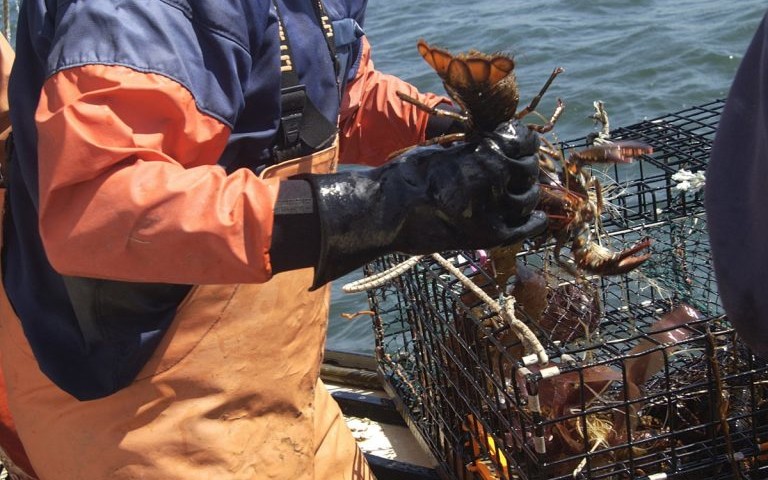In a memorandum released on June 24, President Donald Trump pledged protection for the U.S. lobster industry, touting trade progress with China, trade tracking with the EU, and the possibility of additional aid from the Department of Agriculture.
"It's a promise made, promise delivered," said John Horstman, director of media affairs and special assistant to the president, said in describing the contents of the memo, which followed conversations that started with a roundtable discussion in Maine on June 5.
The memo, addressed to the secretaries of Agriculture and Commerce, as well as the U.S. Trade Representative, requests Agriculture Secretary Sonny Perdue to consider providing "assistance to fishermen and producers in the United States lobster industry that continue to be harmed by China’s retaliatory tariffs," and stipulates a time line of 60 days for action.
The source of the aid is not specified beyond the Department of Agriculture, though the memo notes that it "shall be implemented consistent with applicable law and subject to the availability of appropriations."
Perdue used the Commodity Credit Corporation Charter Act to deliver "more than 14 billion dollars in direct payments to American farmers," following the implementation of tariffs in 2018, according to the memo.
The Commodity Credit Corporation "has an authorized capital stock of $100 million held by the United States with the authority to have outstanding borrowing of up to $30 billion at any one time," according to the USDA website. "Funds are borrowed from the [U.S.] Treasury and may also be borrowed from private lending agencies and others."
This corporation was established in 1933 and chartered by the federal government in 1948 with the express authorization to stabilize, support and protect farm supplies and incomes, and agricultural commodities.
However, it is also deemed to be "an agency and instrumentality of the United States, within the Department of Agriculture, subject to the general supervision and direction of the Secretary of Agriculture."
Whether that means its funds can be applied to the lobster industry because the president has requested the Agriculture secretary to do so in an official memorandum is still unclear.
“USDA is currently in the process of reviewing available authorities and developing guidance and any necessary rulemakings to implement the president’s memo,” said a department spokesperson.
The trade portion of the memo acknowledges the effects of China's retaliatory tariffs (resulting from the same 2018 U.S. tariffs that affected farmers) and orders the Trade Representative to monitor January's phase one trade agreement with China, which includes China's commitment to buy $150 million in seafood products.
"To help fulfill this purchase commitment, China has made available exclusions from its retaliatory tariffs for imports of United States lobster," the memo says.
"We will work with U.S. Trade Representative Robert Lighthizer to supplement and support any information his office needs for monthly updates to President Trump," said Annie Tselikis, executive director of the Maine Lobster Dealers' Association in a release. "We appreciate that President Trump wishes to keep China accountable for the terms laid out in the Phase One Agreement with China regarding lobster and seafood purchases."
The memo also commits to a closer look at the trade disparities that have developed between Canada, Europe and the United States regarding lobster exports.
The Trade Representative shall "provide a report that details any negative effects" of Canada's trade agreement with the EU and "recommend appropriate actions that may be taken to minimize or eliminate any negative effects identified" in consultation with the Agriculture and Commerce secretaries.
“This announcement is a welcome development for Maine’s hardworking lobstermen and women who are facing severe financial difficulties due to unfair retaliatory tariffs as well as the covid-19 pandemic that has closed restaurants and reduced exports,” said Maine's U.S. Sens. Susan Collins (R) and Angus King (I) and Rep. Chellie Pingree (D) in a joint statement. “We have always been strong, steadfast advocates for resolving the trade barriers harming the lobster industry, which supports the livelihoods of thousands of Mainers, and have repeatedly pushed for actions to alleviate the economic challenges those employed in our seafood supply chain are experiencing."







